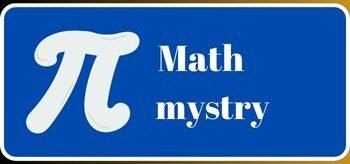Currently Empty: $0.00
- Description
- Curriculum
- FAQ
- Notice
- Reviews
Numerical Analysis is all about using computational methods to solve problems that are too tricky for regular math. It’s everywhere—from engineering and science to finance and technology. Professionals and students in the USA rely on numerical methods to handle real-world problems, like predicting the stock market or designing bridges. With approximation techniques and mathematical modeling, even complex problems become manageable and solvable.
Beyond solving problems, numerical analysis teaches how to reduce errors and make algorithms more efficient. For example, aerospace engineers use numerical methods to simulate planes before building them, saving time and ensuring safety. Financial analysts also use these methods to forecast trends and plan strategies. Without numerical analysis, it would be almost impossible to handle such high-stakes calculations accurately.
What is Numerical Analysis and Why It Matters
At its core, numerical analysis is about approximating answers when exact solutions are too difficult. It relies on computational mathematics to break down complex equations into smaller steps that computers can solve. This allows researchers, engineers, and analysts to work with large datasets and model systems efficiently. Many STEM programs in the USA include numerical methods to prepare students for careers in technology, finance, and research.
The real value comes from its ability to reduce approximation errors. Meteorologists, for example, use numerical methods to predict weather patterns, which involve millions of calculations. NASA applies these techniques to simulate spacecraft trajectories, ensuring mission success. These examples show that mastering numerical methods isn’t just academic—it’s essential for real-world problem-solving.
Numerical Analysis Online Course
Key Techniques and Methods in Numerical Analysis
The main tools in numerical analysis include numerical integration, differentiation, and solving differential equations. Iterative methods are used to gradually reach solutions, and error analysis ensures results are accurate. In the USA, engineers rely on these methods to simulate bridge designs, calculate stress, and test vibration frequencies before actual construction. Using computational mathematics like this helps avoid costly mistakes.
Here’s a simple table showing some common numerical methods:
Technique Purpose Example
Numerical Integration Approximates area under curves Stress calculations in structures
Numerical Differentiation Estimates derivatives Physics motion simulations
Iterative Methods Step-by-step equation solving Stock market trend predictions
Error Analysis Reduces computational mistakes Aerospace simulations
Tools like MATLAB and Python libraries (NumPy, SciPy) make applying these numerical methods easier for professionals.
MIT OpenCourseWare – Numerical Methods
Common Applications of Numerical Analysis in Daily Life

You might not notice it, but numerical analysis is all around. GPS relies on computational modeling for accurate positioning. Traffic apps use simulations to suggest the fastest routes. Financial apps calculate interest rates and predict investments using numerical methods. Even video games rely on these techniques to make movements and collisions feel realistic.
Seeing how numerical methods are used in everyday life helps you understand why learning them matters. From predictive modeling software in hospitals to AI-driven tech, these tools make life smarter and more efficient.
MathMystry Computational Tools
IBM AI and Computational Simulations
Benefits of Learning Numerical Analysis in the USA
Learning numerical analysis gives students and professionals a major advantage. In the USA, it develops computational skills needed for STEM careers. Using numerical methods helps students manage complex simulations in engineering, finance, and research. It also strengthens problem-solving skills, allowing professionals to tackle challenging real-world problems effectively.
The long-term benefits include contributing to innovation and working on cutting-edge projects. Knowing numerical methods opens doors to careers in predictive modeling, data analysis, and scientific research. Companies in finance, aerospace, and healthcare particularly value these skills, making numerical analysis a career booster.
MathMystry Career Guide
Bureau of Labor Statistics – STEM Careers
Challenges and Future Trends in Numerical Analysis
Even though it’s powerful, numerical analysis has challenges. Working with large datasets or real-time simulations creates high computational complexity. Reducing approximation errors while keeping calculations efficient is tough. Industries like aerospace and healthcare depend on precise simulations, so these challenges are critical.
The future is bright. Machine learning, high-performance computing, and cloud-based simulations are changing the field. Professionals can now combine numerical methods with AI for faster, more accurate solutions. For instance, predictive healthcare models in the USA use computational mathematics to anticipate patient outcomes and improve treatments.
MathMystry Future Tech Article
ScienceDirect – Numerical Analysis Trends
Tips to Master Numerical Analysis Quickly
To get good at numerical analysis, practice is key. Use interactive tools and online courses to learn faster. Implement algorithms in MATLAB or Python to apply theory in real situations. Practice financial modeling, engineering simulations, and study case studies from MIT or NASA to build confidence and understanding.
Combining theory with practice strengthens problem-solving skills and prepares students and professionals for advanced projects in the USA.
Khan Academy – Numerical Methods
Conclusion – The Importance of Numerical Analysis in Modern USA
Numerical analysis is a cornerstone of modern science, technology, and engineering in the USA. By offering computational solutions, it allows professionals to solve problems faster, more accurately, and efficiently. Its applications range from financial forecasting to aerospace simulations, making it invaluable.
Learning and embracing numerical methods can improve careers and contribute to innovation. Those who master mathematical modeling, approximation techniques, and computational mathematics can solve complex problems and make a real impact across industries.
-
1Lecture 1
This Lesson Will Cover :
Numerical analysis:
Operator:
Error:
-
2Lecture2
This Lesson Will Cover :
Iteration Methods:
Secant method:
-
3Lecture3
This lesson will cover:
Solution of non-linear equation
Roots of an equation :
Transcendental equation:
Direct method
Indirect method
BISECTION METHOD:
ADVANTAGES OF THE BISECTION METHOD:
DISADVANTAGES OF THE BISECTION METHOD :
BISECTION METHOD Steps :
What is an LMS (Learning Management System)?
A Learning Management System (LMS) is a software application that facilitates the administration, documentation, tracking, and delivery of educational courses and training programs. It provides a centralized platform for educators or organizations to manage and deliver content, assess learner progress, and facilitate communication.
What are the key features of a Learning Management System?
Common features of an LMS include content management, user management, assessment tools, reporting and analytics, communication tools (such as forums or messaging), and integration capabilities with other software systems. These features collectively support efficient and organized online learning experiences.
How can an LMS benefit educational institutions or businesses?
LMS streamlines training and educational processes, allowing institutions and businesses to deliver consistent content, assess learner performance, and monitor progress. It facilitates remote learning, personalized learning paths, and often reduces administrative overhead, making it an essential tool for scalability and efficiency.
What is the role of an LMS in employee training and development?
In the corporate setting, an LMS plays a crucial role in employee training and development. It enables organizations to create, deliver, and track training programs, ensuring employees have access to relevant resources. LMS also supports compliance training, skill development, and ongoing learning initiatives.
1. Feature Alert!
Explore Our Latest Additions – Unleash Enhanced Functionality Today
2. Maintenance Notice
Scheduled Downtime on [Date]. Thanks for Your Patience.
3. Upcoming Event!
Join Us for [Event Name]. Save the Date and Get Ready for an Exciting Experience!
Stars 5
1
Stars 4
0
Stars 3
0
Stars 2
0
Stars 1
0



